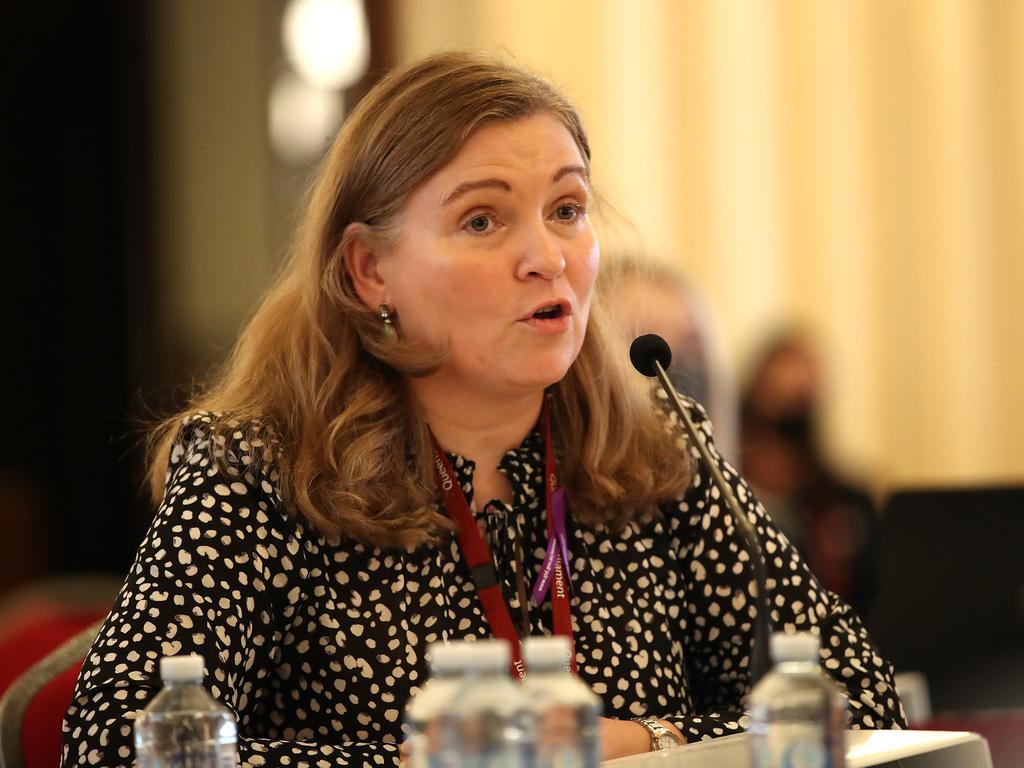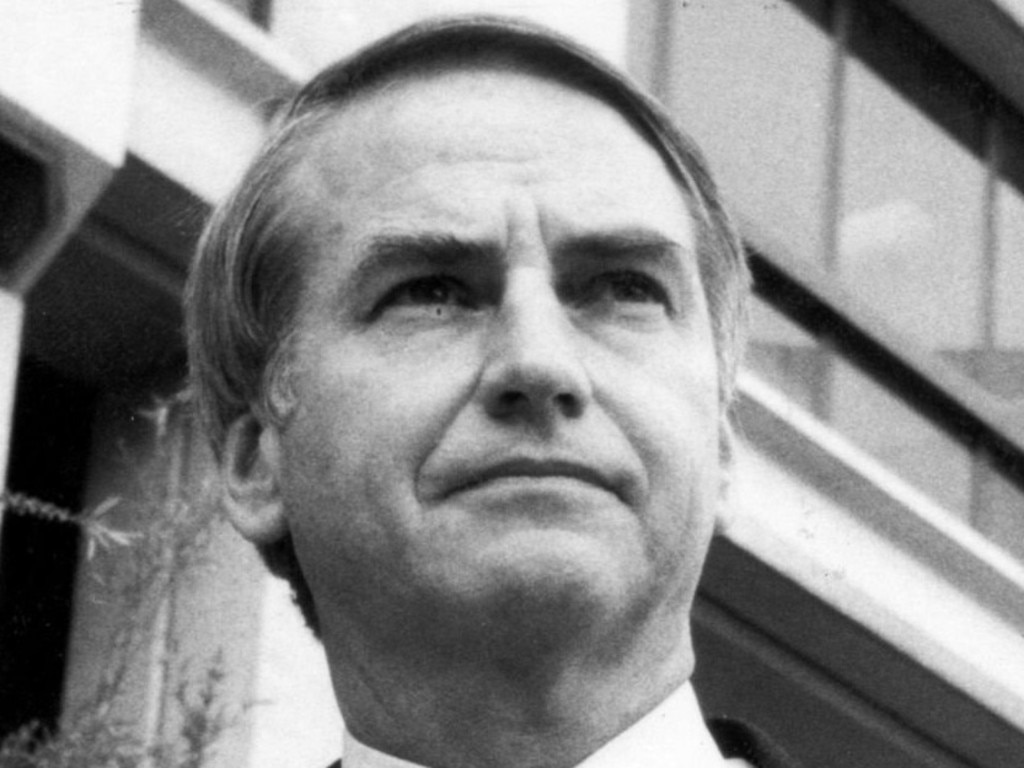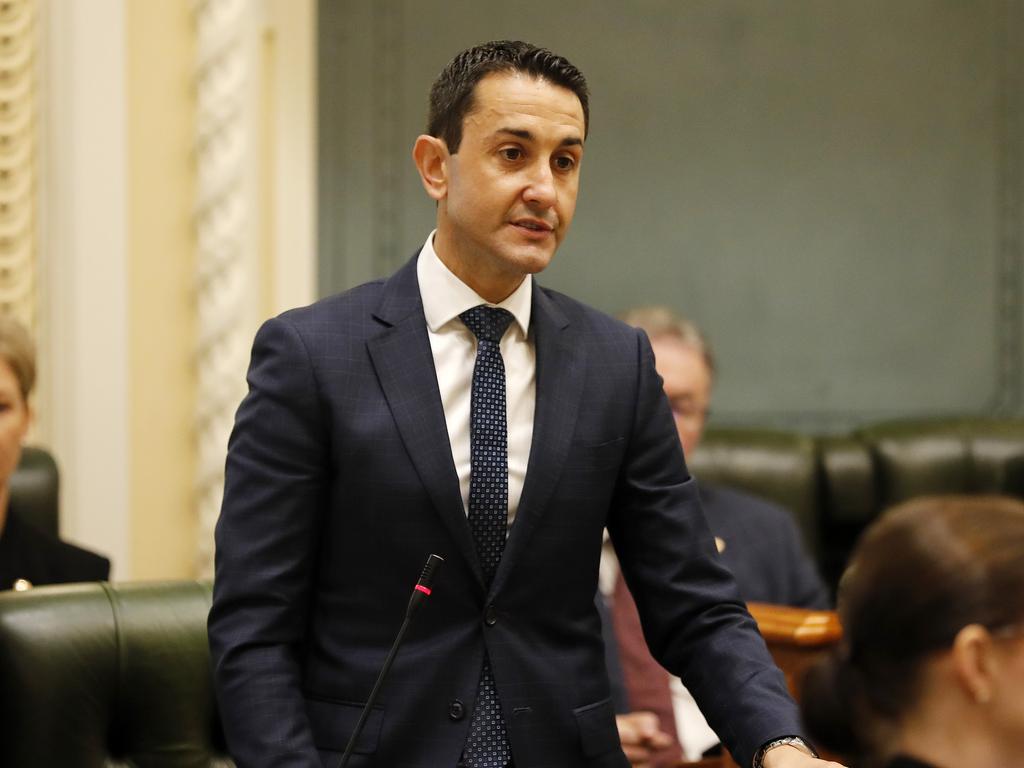Opinion: Good government has integrity at its centre
Tony Fitzgerald needs to take a closer look into matters such as issues around the former Integrity Commissioner in the latest inquiry, suggests a former Courier-Mail journalist whose work led to the landmark 1989 inquiry.
Opinion
Don't miss out on the headlines from Opinion. Followed categories will be added to My News.
As I sit to write this the news is just breaking that the Queensland government has commissioned Tony Fitzgerald QC to partner in leading an independent inquiry into the performance of the Crime and Corruption Commission (CCC).
Opposition Leader David Crisafulli immediately responded by noting that this fell short of the royal commission into government integrity he had been calling for in the wake of the announced resignations of CCC chair Alan MacSporran QC and Integrity Commissioner Dr Nikola Stepanov and the allegations of interference raised by former state archivist Mike Summerell (in this case the circumstances behind him being “former” are a matter of some dispute).

In 1989, then National Party premier Mike Ahern famously promised to implement Fitzgerald’s recommendations “lock, stock and barrel”. In announcing what has already been labelled the Fitzgerald Mk 2 inquiry (In reality, this would be the Fitzgerald Mk 3 inquiry. He also assisted the Goss government overcome its policy paralysis on Fraser Island), Queensland Premier Annastacia Palaszczuk appeared to be emulating Ahern in promising full implementation of recommendations yet to be made.
Looking in from Europe, it is notable that Queensland’s integrity storm came to a head in the same week that Transparency International released its annual country corruption rankings.
When these rankings were introduced in 2012, Australia ranked as the seventh-least corrupt country in the world, up with Norway. We’ve since slid down behind Singapore and Hong Kong to 18th position, a rate of decline similar to that exhibited by authoritarian Hungary.
While some state and local government issues have featured in this decline, corruption experts both within and outside Australia identify the main problems as being the almost total lack of effective anti-corruption machinery at the federal level, the clearly related and continuing stream of scandals at the federal level and by Australia falling further and further behind in implementing international controls meant to deter money-laundering and organised crime – a clear federal responsibility.

So, sorry Mr Chrisafulli. You are quite right to raise issues of concern with government integrity in Queensland. But it will be easier to take you more seriously if you take up the cudgels with your coalition colleagues in Canberra for dragging down the whole country’s performance and reputation on these issues.
One point often overlooked and one that Tony Fitzgerald QC was rightly at pains to emphasise in 1989 is that our fundamental institutions of accountability are our parliaments. Other accountability institutions, such as auditors-general, anti-corruption commissions, ombudspersons and integrity commissioners usually have a direct reporting line to parliament, in an effort to give them some measure of independence from the executive.

In this instance, the parliamentary committee for the CCC has recommended an inquiry into the CCC’s performance and Premier Palaszczuk, perhaps with some prompting, is following up on this recommendation.
The question is whether the other integrity issues should also be brought into the ambit of the inquiry and Fitzgerald in the past has shown himself to be not the least bit hesitant about asking for extended terms of reference.
If I were in the position of Mr Fitzgerald QC and his partner former Supreme Court Judge Alan Wilson QC, I would be very tempted to take a closer look at the issues raised in relation to the Integrity Commissioner.

Importantly, since 2009 the Integrity Commissioner has been in charge of the Lobbying Register, where within some constraints lobbyists must file and the public can consult details of their clients and meetings with state government and (since 2017) local government members and officials. Recently, it emerged that the Public Service Commissioner was involved in the seizure of a laptop from the office of the Integrity Commissioner and erased its contents.
It is completely unclear what powers the Public Service Commissioner was relying on to seize the laptop or how such an action might be regarded under archives laws that make it a criminal offence to destroy information.
The erased information has been said to be in some way connected to lobbying activities, legislatively an entirely proper concern of the integrity commissioner.
What might be called the “Lobbying Laptop Affair” has since been referred to the CCC. One unfortunate tendency of referrals to the CJC however is that parliament and press often takes this as the signal to drop the case and await the CCC report.
This needn’t and probably shouldn’t be the case. Back in the era of Fitzgerald’s landmark inquiry, I accepted being constrained on reporting on the inquiry on the reasonable basis of being a witness to the inquiry.
But I did not feel constrained from continuing my own parallel inquiries into corruption, which arguably were of some assistance to the inquiry and later prosecutions.
A concern with the integrity of government should always be applauded.
Integrity matters and it is closely correlated with good government.
Phil Dickie is a former The Courier-Mail journalist who was instrumental in uncovering corruption that was the basis for the original Fitzgerald Inquiry





